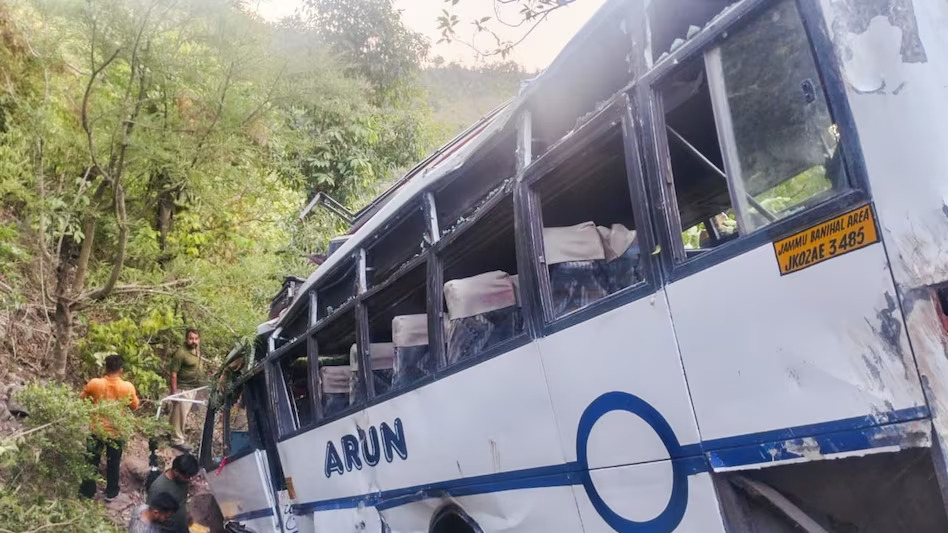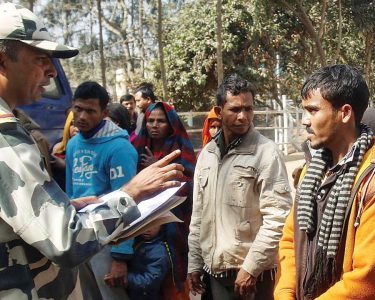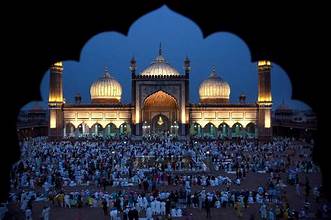On a bright Sunday morning, June 10th, 2024, a pilgrimage to the holy shrine of Shiv Khori in Jammu and Kashmir turned into a scene of unimaginable horror. A bus carrying pilgrims, many with families and young children, was ambushed by unidentified assailants near Teryath village in the Poni area of Reasi district.
A Brutal Assault
Reports paint a chilling picture. The bus, carrying around 53 passengers, came under a hail of gunfire. Initial reports suggest at least three masked attackers stopped the vehicle and opened fire. In the ensuing chaos, the driver lost control, possibly shot, causing the bus to veer off the road and plunge into a deep gorge. The mangled wreckage became a tomb for the innocent.
The official death toll stands at 10, including the driver and conductor, a tragic testament to the attackers’ brutality. A two-year-old child perished in the attack, a stark reminder of the indiscriminate nature of such violence. At least 33 others were injured, with some in critical condition.
A Web of Claims and Conflicting Narratives
The attack’s aftermath was further marred by confusion. Three shadowy groups claiming links to banned terrorist outfits Lashkar-e-Taiba (LeT) and Jaish-e-Mohammed (JeM) emerged on social media, accepting responsibility. However, these claims were retracted soon after, casting doubt on their authenticity and raising questions about the attackers’ motives and affiliations. Security experts believe this backtracking could be a tactic to avoid blame or create a sense of fear.
A massive search operation involving the Indian Army, Jammu and Kashmir Police, and Central Reserve Police Force (CRPF) has been launched to apprehend the perpetrators. The rugged terrain and the attackers’ advantage of surprise make the task challenging. Authorities are also investigating the source of the weapons, potential training camps used by the attackers, and any potential intelligence failures.
Outrage and a Deepening Wound
The attack has sparked national outrage. Political leaders across the spectrum condemned the violence, expressing their deepest condolences to the families of the victims. Candlelight vigils and protests were held across the country, reflecting the collective grief and anger. This attack serves as a grim reminder of the ongoing struggle against terrorism in Jammu and Kashmir. The region has a long and bloody history of militancy, and this incident has reignited anxieties and fears among the local population.
The impact of the Reasi attack extends far beyond the immediate loss of life. The tourism industry in Jammu and Kashmir, which has been slowly recovering in recent years, has been severely affected. This attack has instilled fear in the minds of potential pilgrims and tourists, jeopardizing the livelihood of many in the hospitality sector.
A Call for Action
Immediate action has been taken to support the victims and their families. The government has announced financial compensation packages and is working to ensure the best possible medical care for the injured. Local NGOs and civil society groups have also stepped in, offering emotional and logistical support to those affected.
The Reasi terror attack demands a multi-pronged approach to prevent similar tragedies in the future. A thorough investigation is crucial to identify the attackers and dismantle any existing network. Security measures in vulnerable areas need to be strengthened, including improved intelligence gathering and patrolling. The attack also highlights the need for fostering dialogue and reconciliation efforts to address the root causes of terrorism in the region. Addressing grievances, promoting education, and creating economic opportunities are essential steps towards building a more peaceful future for Jammu and Kashmir.







